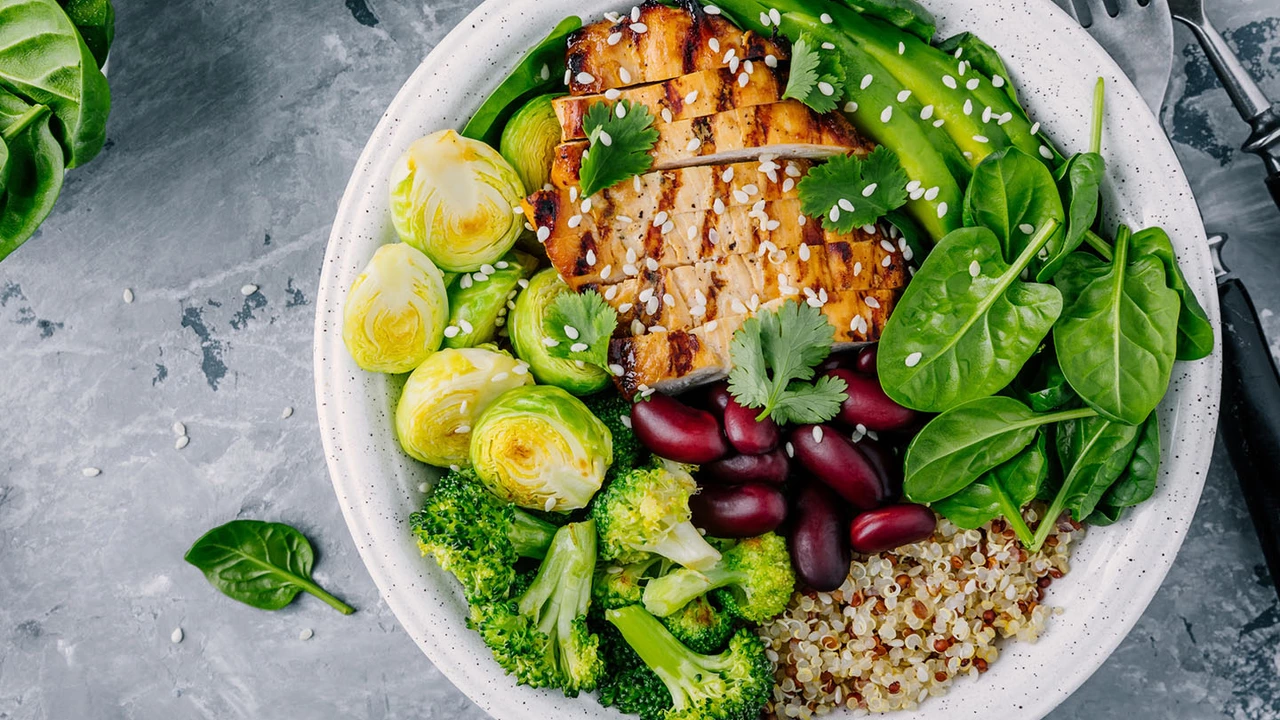
Understanding the Keto Diet
Before diving straight into the topic, let's take a moment to understand what the keto diet is all about. The ketogenic diet, often abbreviated as the keto diet, is a high-fat, moderate-protein, and low-carb diet. The main objective of this diet is to get your body into a state of ketosis, where it starts burning fat for energy instead of carbohydrates. This shift in metabolism is believed to aid in weight loss and enhance overall health.
While the keto diet is widely known for its weight loss capabilities, it's also been studied for its potential benefits in managing conditions like diabetes, epilepsy, Alzheimer's disease, and certain types of cancer. But like any other diet, it's crucial to understand what you can and cannot eat to stay within the guidelines of the diet.
What Constitutes a Keto-Friendly Meal?
A typical keto-friendly meal is high in healthy fats, has a moderate amount of protein, and is low in carbohydrates. The aim is to keep your carb intake to less than 50 grams per day, with some keto dieters aiming for as low as 20 grams. This means that foods like bread, pasta, and sugar are a big no-no on this diet.
However, this doesn't mean you have to starve or stick to boring food options. Thanks to the high-fat content, keto meals can be satiating and delicious. They usually include ingredients like meat, seafood, dairy, eggs, nuts, fats, oils, and low-carb veggies.
Is 1/2 Roasted Chicken Too Much for a Keto Lunch?
Now to the burning question: is half a roasted chicken too much for a keto lunch? The answer isn't black and white, as it depends on various factors such as the size of the chicken, the way it's cooked, and your personal nutritional needs.
A medium-sized roasted chicken half, without the skin, contains about 40 grams of protein and very minimal carbs, which makes it a good option for a keto meal. However, if you're also eating the skin, the fat content increases, but so do the calories, which is something you might want to take into account if you're also trying to lose weight.
Protein Intake on a Keto Diet
While it's true that the keto diet is high in fat, it doesn't mean you can neglect your protein intake. Protein is essential for muscle building and repair, and it also plays a crucial role in various bodily functions. However, on a keto diet, you need to balance your protein intake carefully. Too little can lead to muscle loss, and too much can kick you out of ketosis.
The recommended protein intake for a keto diet varies depending on your weight, age, and activity level. But as a general guideline, aim for about 0.6 to 1 gram of protein per pound of body weight. This means if you weigh 150 pounds, you should consume between 90 to 150 grams of protein per day.
Portion Control and Meal Planning
Like any other diet, portion control is key in a keto diet. Eating large portions, even of keto-friendly foods, can lead to weight gain. Therefore, it's important to be mindful of your portion sizes and adjust them according to your specific dietary goals and needs.
Planning your meals in advance can also help in maintaining the right balance of macronutrients on a keto diet. By planning, you can ensure that you are getting the right amounts of fats, proteins, and carbs in your meals. This way, you can enjoy your half roasted chicken for lunch without worrying about overdoing it.
Conclusion: Finding Balance in a Keto Diet
In conclusion, while half a roasted chicken can fit into a keto lunch, it's essential to consider your overall daily intake of proteins, fats, and carbs. The key to a successful keto diet is finding a balance that works for your body and lifestyle.
Remember, every person's body responds differently to diets. What works for one may not work for another. Thus, it's always best to consult with a healthcare provider or a dietitian before starting any new diet regimen. They can provide guidance based on your individual nutritional needs and health goals.


